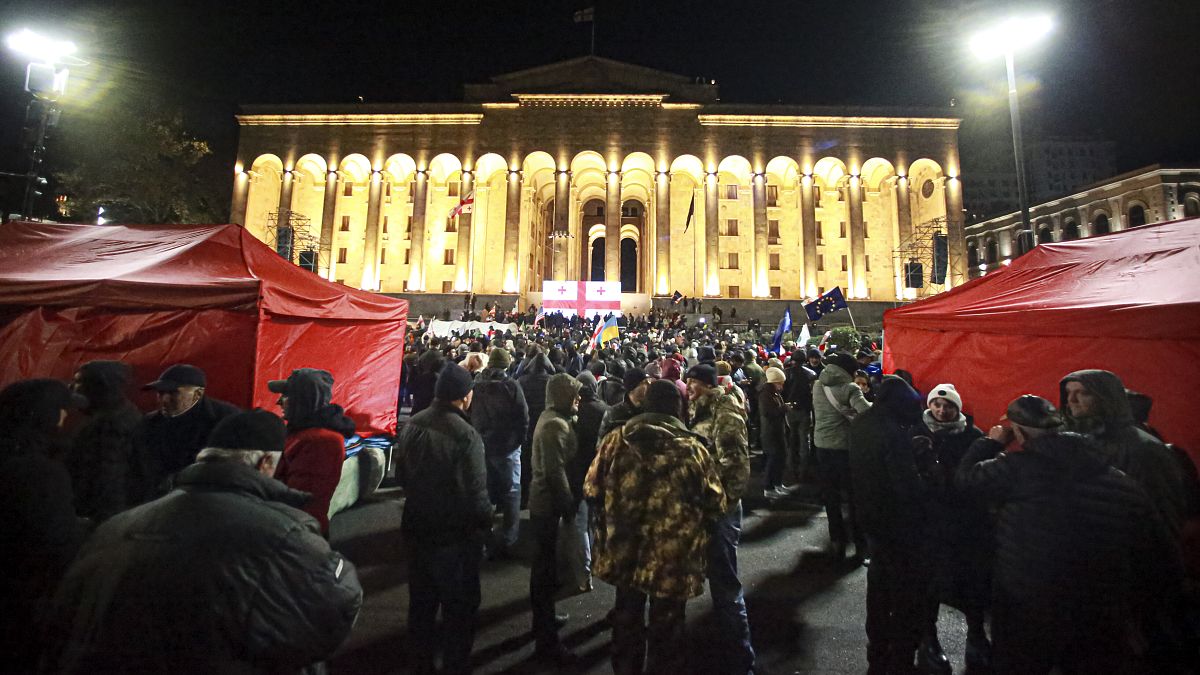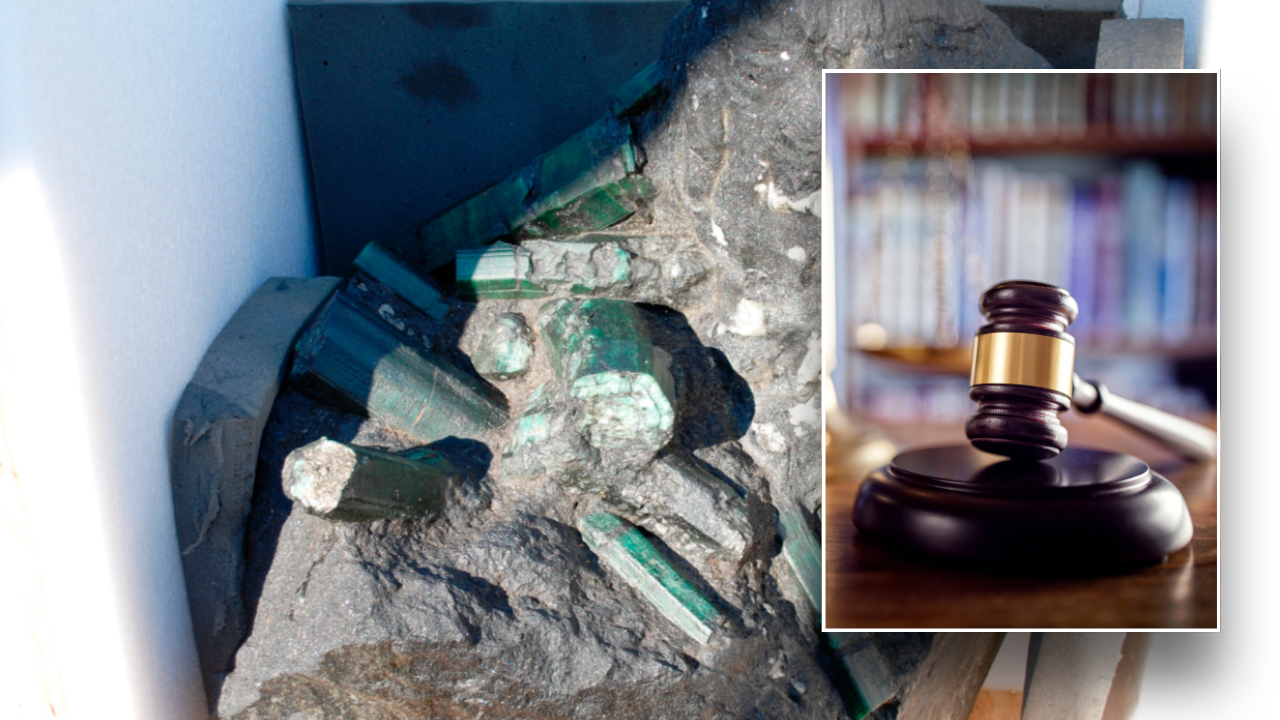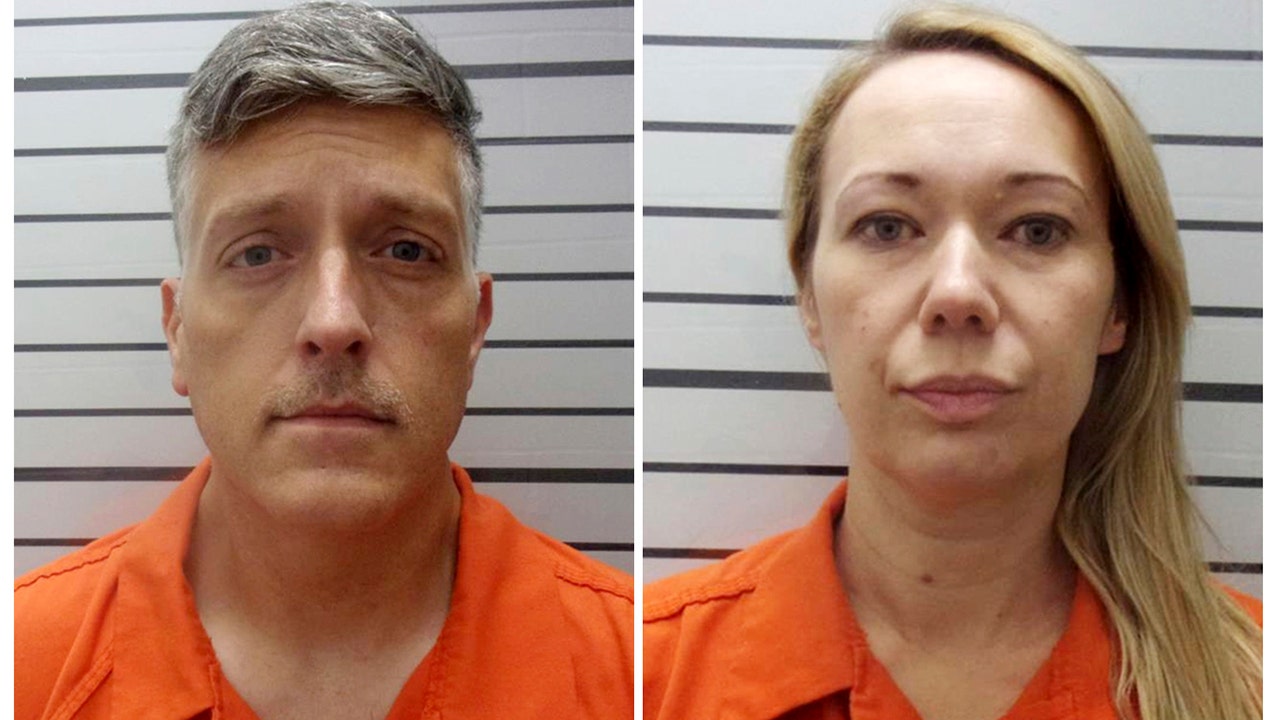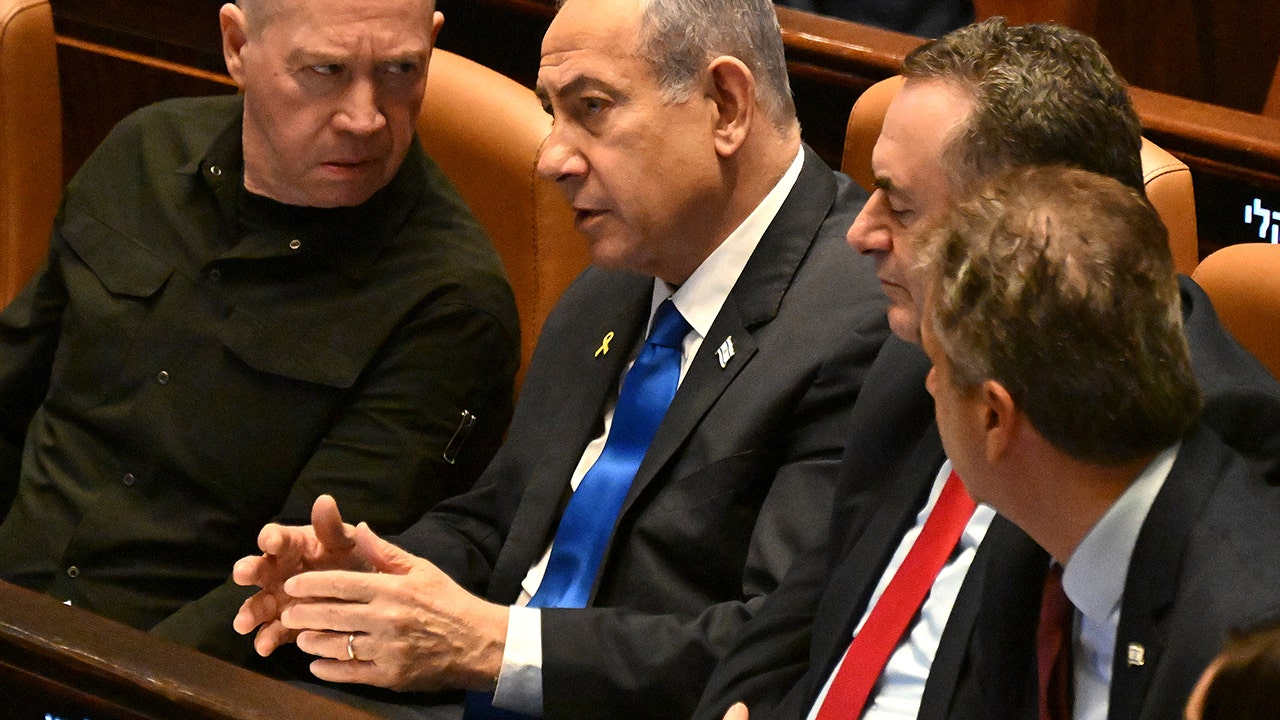ZOUK MOSBEH, Lebanon — When night falls, it’s no longer sleep but the humming threat of an Israeli strike that descends on the Lebanese capital.
Israel’s overnight attacks, which reached the heart of Beirut in the early hours of Thursday, mean that few in the city and beyond are getting any rest. Residents told NBC News they’ve hardly slept in recent days, fearful of where Israel will strike next and what the future holds for their long-beleaguered country now at the center of a spiraling regional conflict.
Hala Kobaissi, a makeup artist living in Beirut’s Salim Salam neighborhood — just a stone’s throw from Bachoura, where at least nine people were killed in an Israeli strike on the city’s heart overnight — said she spent the hours from dusk to dawn “in total shock” as the sounds of “shattered glass, people’s screams and cries” rang out.
“I don’t know what to say and from where to start,” said Kobaissi, 55, speaking at a frenetic pace in a phone interview early Thursday. “Nowhere is secure now.”
Follow live updates here.
“Every night, we say this is the toughest night,” Hiam Khoury, 50, said after spending another restless night in the Beirut suburb of Hadath, where she lives with her 19-year-old son.
The hours from dusk to dawn were “a nightmare,” she said, after Israel launched its deepest aerial attack into the capital city yet.
Israeli strikes were also launched overnight in the suburb of Dahieh, a Hezbollah stronghold less than a 10-minute drive from Hadath, with the tremors from the blast felt through Khoury’s home.
“Everything was shaking, the house,” she said. “We didn’t sleep. How can you do it, even if the bombing stops?”
Across the country, where more than 1,300 people have been killed and some 1.2 million displaced since Israel ramped up its military offensive, families described sleepless nights filled with terror. A growing number of people have had little choice but to try to sleep on Beirut’s bustling streets, in parking lots and playgrounds as overcrowded shelters fill up.
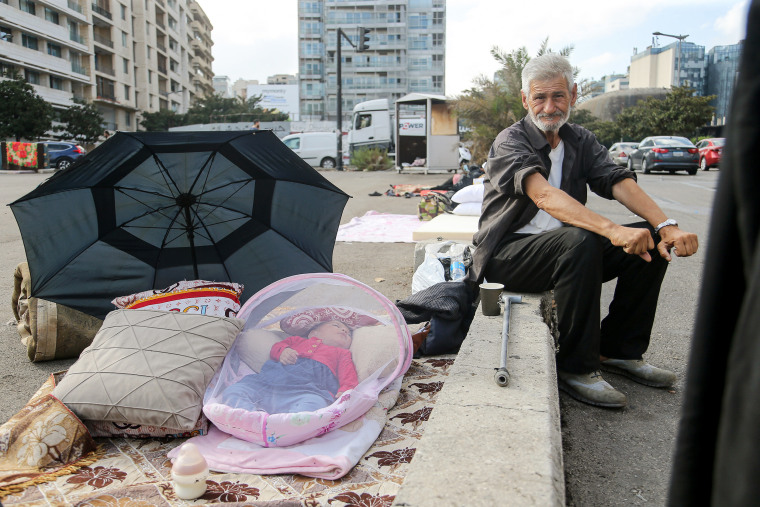
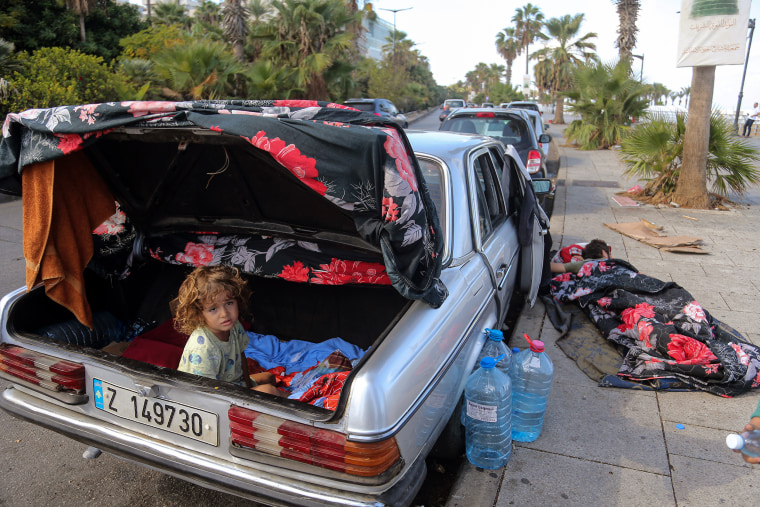
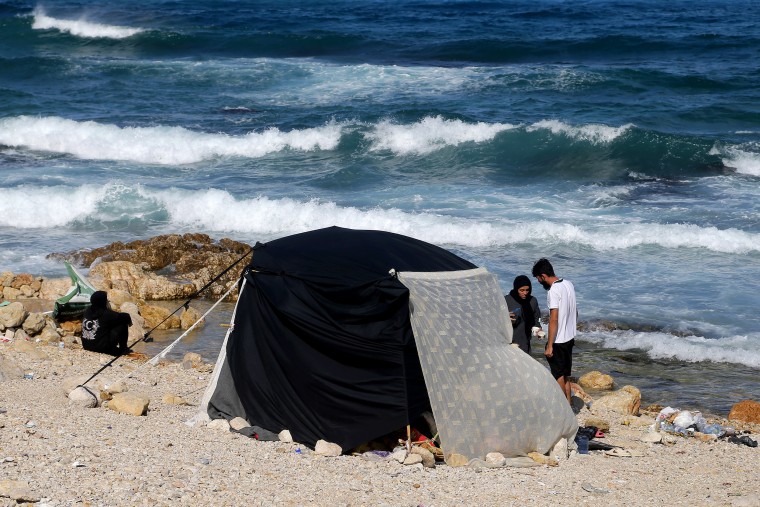
“For the last three days, people have been on edge,” said Rayan Youness, 42, a school instructor living in the capital’s Hamra neighborhood.
“They’re staying up until the early hours in the morning,” he said, “wondering where the explosion is going to come from: Is it going to hit me? Is it going to hit somebody I know? Is it going to hit a family?”
“From the moment we wake up until the moment we try to fall asleep, there are reaper drones above our heads,” Youness said. “All throughout the city, in any and every neighborhood. Is this normal?”
Dr. Tania Baban, a doctor working on the ground in Beirut for the Illinois-based humanitarian nonprofit MedGlobal, said she was horrified this morning after hearing that people who had fled to Lebanon’s capital in search of safety were forced to flee once again after Israel launched its overnight strike in Bachoura.
“Can you imagine being woken up by a blast, then told to evacuate within minutes?” she said Thursday morning. “The horror of waking up your children and running away and leaving behind everything?”
Baban said she too has gotten little sleep in recent days, working into the early hours of the morning to help provide displaced civilians with basic necessities such as food and bedding, as well as medical care.
“As soon as the sun sets, we know something’s going to happen,” she said.
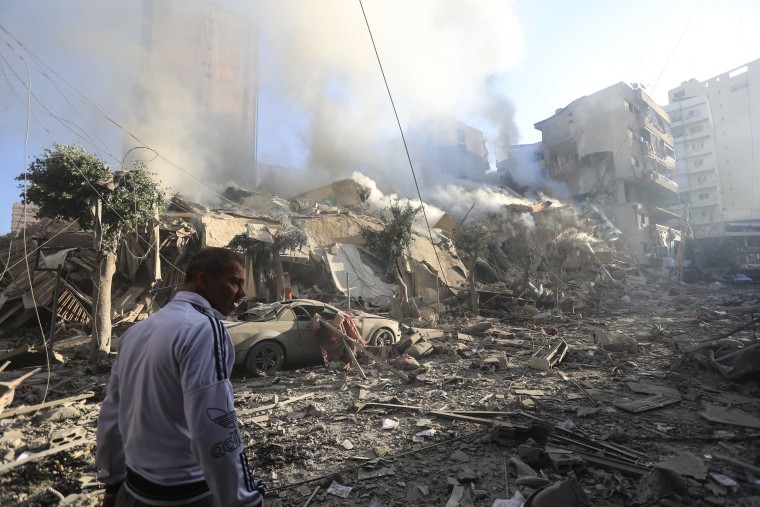
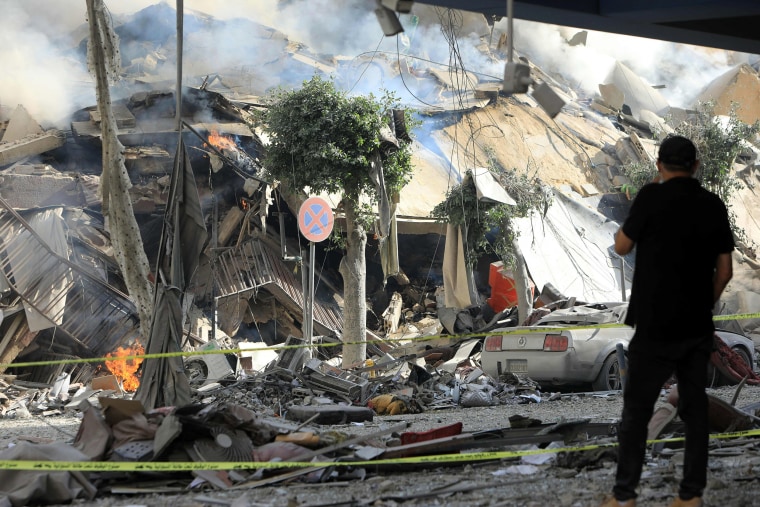
Matthew Savill, director of military sciences at the Royal United Services Institute, said striking at night typically “privileges the side which has trained and prepared to do so, with sensors, visual aids and other technologies.”
During Israel’s 2006 war with Hezbollah, he said, the Israel Defense Forces were surprised to find Hezbollah ‘special forces’ “who were equipped like their own specialists, including with night-vision goggles.”
This time around, with Hezbollah “communications compromised, the Israelis no doubt calculate they can gain an additional advantage, though the complexity of night-fighting shouldn’t be under-estimated,” Savill said.
Mahdi Ghuloom, a regional security analyst at Le Beck International, said Israel’s decision to launch strikes overnight could also be in part “due to the timing of accurate intelligence on targets.”
“The intelligence advantage may be arising from lower level of mobility amongst high-value targets for the (Israeli military) during the night, and thus presenting actionable information on where to strike,” he said in an email Thursday. “It may also point to weaknesses amongst Hezbollah ranks at night.”
The United States has led calls for a cease-fire to bring an end to the fighting between its ally and the Iran-backed militant group but, with the conflict only intensifying, Khoury said that in Lebanon staying up through the night “traumatized” has become a “daily routine.”
“I don’t know how long this is going to last. We don’t have a place to go to and we don’t want to leave our house and stay on the street,” she said.
Read the full article here



